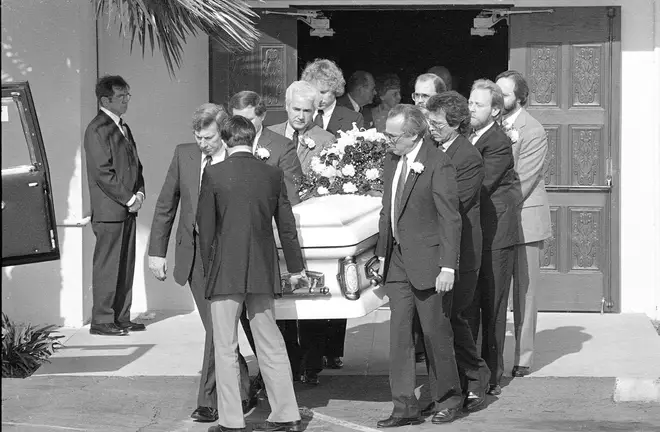Some endings are quiet. They do not come with a curtain call or a final applause; they come with silence. For Richard Carpenter, that silence arrived on February 4, 1983—the day his sister, his musical partner, and his best friend, Karen Carpenter, passed away. In that moment, he felt not only the devastating weight of personal loss, but also the undeniable truth that the era of The Carpenters—a chapter of his life defined by music, family, and dreams shared with his sister—had come to an end.
Richard and Karen Carpenter had been more than a musical duo. They were two halves of the same soul, creating a sound so unique and tender that it became the voice of a generation. Richard was the composer, the architect, carefully crafting lush arrangements and delicate harmonies. Karen was the heart—the voice that could capture sorrow and joy in the same breath. Together, they turned life’s simplest emotions into melodies that felt like they had always existed: Close to You, Rainy Days and Mondays, We’ve Only Just Begun.
For years, their music was a celebration of connection and comfort. Behind the soft piano chords and the gentle drumbeats, there was the bond of siblings who trusted and understood each other completely. But as Karen’s health declined, that world began to fracture. Richard later admitted that he had noticed the changes, the struggles behind her warm smile, but nothing could prepare him for the finality of her absence.
After Karen’s death, Richard walked into the studio—a place once alive with her laughter and effortless voice—and found only emptiness. The piano keys felt cold. The microphones stood waiting, but the room had lost its magic. In that instant, the realization struck him like a quiet thunder: without Karen, The Carpenters no longer existed. The era they had built together—filled with hope, innocence, and the soundtrack of countless lives—had ended.
In interviews, Richard has spoken softly about that moment, often with pauses that feel like he is still speaking to her in his heart. He describes a grief that was not just about losing a sister, but losing a part of himself, the part that only came alive when she sang his music. Each note he had ever written for her was now a memory, echoing in the empty air of a studio that would never sound the same.
Yet, Richard Carpenter’s reflection is not only one of sorrow—it is also one of love and enduring legacy. He has devoted himself to preserving their music, remastering recordings, sharing their story, and ensuring that Karen’s voice continues to resonate in the hearts of listeners. Every time Yesterday Once More or Superstar plays, a new generation discovers what Richard already knows: that Karen’s voice was more than music—it was emotion, pure and unfiltered.
The heartbreaking moment Richard realized the era of The Carpenters was over is one he will carry forever, but so too will he carry the joy of the years they spent together. Their music remains a bridge between the past and the present, a gentle reminder that love and art can outlive even the greatest losses. For Richard, the melodies will always linger, whispering the memory of a sister who left the world too soon, but whose voice will never truly fade.
